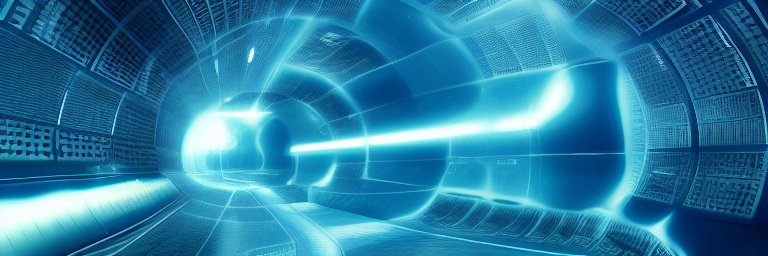As we stand on the brink of a new era, artificial intelligence (AI) agents are poised to transform every aspect of our lives. These intelligent systems, capable of learning, reasoning, and problem-solving, will redefine industries, enhance human capabilities, and shape the future in ways we are only beginning to understand. The integration of AI into our daily routines and professional environments promises a revolution that will touch every corner of human existence, from the way we work and communicate to how we learn, travel, and even perceive the world around us.
The potential of AI agents lies in their ability to process and analyze vast amounts of data far beyond human capabilities. They can identify patterns, predict outcomes, and make decisions with a level of speed and accuracy that is transforming traditional approaches in numerous fields. As AI continues to evolve, these agents will not only support human activities but also augment them, leading to new levels of efficiency and innovation.
Revolutionizing Industries:
Healthcare: AI agents will revolutionize healthcare by providing personalized treatment plans, predicting disease outbreaks, and assisting in complex surgeries. Machine learning algorithms can analyze vast amounts of medical data to identify patterns and recommend treatments, leading to improved patient outcomes and reduced healthcare costs. AI-powered diagnostic tools will enable early detection of diseases, significantly increasing the chances of successful treatment.
Finance: In the financial sector, AI agents will enhance fraud detection, optimize investment strategies, and automate routine tasks. By analyzing market trends and historical data, AI can provide more accurate predictions and personalized financial advice. Robo-advisors will offer efficient, low-cost investment management, making financial services more accessible to a broader audience.
Education: AI agents will transform education by offering personalized learning experiences tailored to individual needs. Intelligent tutoring systems can adapt to a student’s learning style and pace, providing customized feedback and resources. AI can also assist educators in administrative tasks, allowing them to focus more on teaching and student engagement.
Transportation: The transportation industry will see significant changes with the advent of autonomous vehicles. AI agents will enable safer, more efficient transportation systems by reducing human error and optimizing traffic flow. Self-driving cars, drones, and AI-driven logistics will revolutionize how goods and people move, reducing congestion and environmental impact.
Enhancing Human Capabilities:
Personal Assistants: AI-powered personal assistants will become indispensable in our daily lives, managing schedules, automating routine tasks, and providing timely information. These agents will learn our preferences and habits, offering proactive suggestions and support. Voice-activated assistants like Siri, Alexa, and Google Assistant are just the beginning of a new era of human-AI interaction.
Creativity and Innovation: AI agents will augment human creativity by providing new tools for artistic expression and problem-solving. AI-driven design software can generate innovative product concepts, while AI composers and artists create music and visual art that push the boundaries of creativity. Collaboration between humans and AI will lead to groundbreaking inventions and discoveries.
Work and Productivity: In the workplace, AI agents will automate repetitive tasks, freeing up human workers to focus on more strategic and creative endeavors. AI-driven analytics can provide insights into business operations, helping organizations make data-driven decisions. Enhanced productivity and efficiency will lead to economic growth and the creation of new job opportunities.
Shaping the Future:
Ethical Considerations: As AI agents become more integrated into society, ethical considerations will be paramount. Ensuring fairness, transparency, and accountability in AI systems will be critical to prevent biases and protect privacy. Policymakers, technologists, and ethicists must work together to create guidelines and regulations that promote the responsible development and use of AI.
Global Impact: AI agents have the potential to address some of the world’s most pressing challenges, from climate change to poverty alleviation. AI-driven solutions can optimize resource management, predict and mitigate natural disasters, and enhance agricultural productivity. By harnessing the power of AI, we can work towards a more sustainable and equitable future.
Human-AI Collaboration: The future will be defined by the collaboration between humans and AI agents. Embracing this partnership will enable us to achieve greater heights and solve complex problems that were previously insurmountable. By leveraging the strengths of both humans and AI, we can create a future where technology enhances our lives in meaningful and transformative ways.
Final Thoughts:
The advent of AI agents marks a pivotal moment in human history. As these intelligent systems become increasingly integrated into our lives, they will revolutionize industries, enhance human capabilities, and shape the future in profound ways. By embracing the potential of AI and addressing the associated ethical challenges, we can create a future where AI agents contribute to a more prosperous, equitable, and sustainable world.

